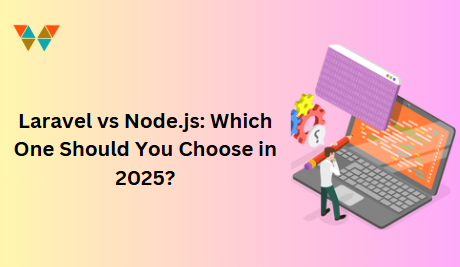Web Application vs Desktop Application: Pros and Cons

When deciding between a web application vs desktop application, it’s essential to understand their unique benefits and drawbacks. Web apps have accessibility, cross-platform compatibility and ease of update, making them ideal for a wide range of Internet-dependent uses. On the other hand, desktop apps offer excellent performance, offline functionality and enhanced privacy, making them suitable for resource-intensive tasks and environments with limited internet access.
In this article, we explains the main differences of web application vs desktop application in order to determine the type of application that best suits your business needs by verifying key factors such as performance, security, and user experience.

Web Application Vs Desktop Application
What is web application?
In web application vs desktop application, a web application is a kind of software program running over the internet on a server which one can access over a web browser. These don’t require downloading and installing on their own machines since they access over their web browser. There are so many typical examples for the same such as E-commerce platforms, the portals for online banking services, and cloud-based social media as well as productivity applications.
Key Features of Web Applications
- Internet-dependent: Some web applications are dependent on the Internet, but may have limited functionality when there is no Internet connection.
- Cross-platform compatibility: It can run on any operating system, from desktop to mobile phones.
- Centralized data management: Data resides on servers, often in cloud infrastructure, making it accessible, updatable, and extensible.
- Automatic Update: Since the application is stored on the server, you can push updates instantly, and all users can access the latest version.
What is a desktop application?
Between web application vs desktop application, Desktop applications are installed directly on your device, such as computers and laptops. Desktop applications generally do not rely on Internet connectivity, but some require Internet access for data updates or specific online features. Examples of desktop applications include Microsoft Office, Photoshop, media player, and video editing tools.
Key Features of Desktop Applications
- Platform-Specific Installation: Most platform-specific installations include Windows, macOS, as well as Linux.
- Offline availability: Since it is accessed offline, it can have an experience that is consistent not depending on an internet connection.
- Improvement in performance: Desktop applications use the native resource of a device to deliver improved performance and more functionality.
- User-controlled Updates: Usually, updates would depend on users to download a new version.
Pros and cons of Web Applications
Among web application vs desktop application, Web applications offer many advantages, especially in terms of accessibility and ease of maintenance, but also with certain limitations. Let’s organize the main advantages and weaknesses.
Pros of Web Applications
Accessibility regardless of device or location
Web applications can be accessed from anywhere on an Internet-enabled device with a web browser, so users does not lose access to switching devices. This is ideal for applications that serve a wide range of mobile users, including email, social media, and cloud-based office suites, or require on-the-go functionality.
Easy updates and maintenance
In web applications, updates apply on the server side, so all users automatically access the latest version. Developers can deploy modifications and new features without having users download updates, streamlining the development process.
Cross-platform compatibility
Most of the newest Web applications are designed responsibly in consideration of different screen sizes and devices. Compatibility among desktops, tablets and smartphones ensures a uniform experience and helps reach a cross-section of users without necessitating the development of numerous platform-specific versions.
Reduce System Resources
Web applications do not run directly on the hardware of the device, thus reducing the consumption of local resources such as RAM and storage. Most applications are processed on remote servers, which also benefits users with low-spec devices and limited storage capacity.
Reduce development and deployment costs
Developing a single web application that runs on different devices is more cost-effective than creating a separate desktop version. This approach reduces resources required for cross-platform testing and reduces development time.
Cons of Web Application
Dependence on Internet connection
Web applications generally require a stable internet connection to function properly. The latest web technology also allows offline functionality, but many applications are still limited. This makes web applications less reliable for poor connectivity areas and users who need consistent offline access.
Security Vulnerability
Web applications are essentially vulnerable to hacking, phishing and data breaches because they are accessible over the Internet. Protecting web applications requires robust encryption, authentication and proactive monitoring to protect user data from potential threats.
Performance Limitations
Resource-intensive tasks like 3D modeling and video editing are often less efficient in web applications due to limited hardware control on devices. While cloud computing can support some high-performance tasks, desktop applications generally perform better against demanding workloads.
Dependence on browser compatibility
Web applications need to function in various web browsers, and interpretation of code is subtly different depending on the browser. Developers must test and optimize applications for different browsers, which can lead to longer development periods and inconsistent experiences for some users.
Privacy and Data Retention Concerns
The privacy and security of information, as a result of web applications, are usually what users might be concerned with because it stores data in a remote server. Although cloud providers are very strict in implementing their security protocols, remote data storage can make users uncomfortable regarding data privacy.
Pros and cons of Desktop Applications
In web application vs desktop application, Desktop applications offer powerful benefits in terms of performance, data privacy, and offline capabilities. However, there are disadvantages that do not necessarily meet the needs of all users.
Pros of Desktop Applications
High performance and resource utilization
The desktop application runs directly on the user’s device, enabling full use of local system resources. As a result, high speed and excellent responsiveness are realized, especially in complex tasks such as video editing, graphic design and games.
Offline Accessibility
Unlike web application, desktop application does not depend on an internet connection. Thus, the users can work non-dependence and seamlessly offline. This is a huge advantage for users in areas where Internet access is restricted or who wish to work without a network interruption.
Enhanced data security
Desktop applications store data locally on your device so you can manage privacy more strictly. This minimizes opportunities for online security threats, such as hacking and unauthorized data access, and is advantageous for the confidential information industry.
Customization and flexibility
In many cases, users have more freedom to control desktop application settings and features, enabling a customized experience. Advanced applications can be customized according to user preferences and can be integrated with other installed software to add features.
Advanced features and complex interfaces
Desktop applications allow developers to implement complex interfaces and use device hardware features that are difficult to reproduce in web applications. This makes it ideal for applications that require advanced navigation and integration with specific hardware, such as keyboard shortcuts and advanced graphic rendering.
Cons of Desktop Application
Platform-specific development
Desktop applications are typically designed for specific operating systems and require separate versions for Windows, macOS and Linux. This may increase development costs and time required for testing and maintenance.
Installation and storage requirements
Users need to download and install desktop applications, which require hardware specifications that are compatible with sufficient storage capacity. For this reason, users with limited storage capacity and technical expertise on the device may refuse to install the application.
Manual Update
Desktop application updates usually require users to download and install the latest version. This can result in version fragmentation, with some users continuing to use older versions of applications that are less secure.
Restricting accessibility between devices
The desktop application depends on the device, so the user can only access it on a specific device installed. Frequently switching devices can be inconvenient because the flexibility provided by web applications is limited.
High development costs for cross-platform support
Developing desktop applications for multiple operating systems requires additional resources and expertise, resulting in higher development costs. This is especially challenging for small businesses and independent developers who don’t have a budget to maintain another version.
Key factors to consider when choosing between web application vs desktop application
These all web application vs desktop application depends on a number of factors, such as who your target user is, what your budget is, the performance requirements, and the scalability into the future. Here are some considerations that will help guide your decision:
1. Target users and usage needs
- Web applications: Web applications are best suited if the user is more likely to access the application from multiple devices or on the go. Flexibility to reach users regardless of operating system or device model.
- Desktop applications: Desktop applications are generally suitable for users who need high-performance, specialized software, such as designs, media, games, etc.
2. Budget and development constraints of
- Web Applications: Web development is often cost-effective because it is a single application version compatible between platforms. This approach reduces both initial development and ongoing maintenance costs.
- Desktop applications: Developing desktop applications for multiple operating systems can be more costly and time-consuming, especially if they are intended to support Windows, macOS and Linux platforms.
3. Performance and Resource Requirements
- Web applications: Web applications are suitable for general tasks that do not require great processing power, such as content management, social networking, and online collaboration.
- Desktop applications: Desktop applications are suitable for general tasks that do not require great processing power, such as content management, social networking, and online collaboration.
4. Connectivity and accessibility needs
- Web applications: Suitable for users who have stable internet access and need to work on multiple devices.
- Desktop Applications: Ideal for users in areas with unstable Internet connectivity or who need constant access to application features offline.
5. Security and Privacy
- Web applications: Storage and transmission of online data requires strong security measures as they can be threatened with various threats.
- Desktop applications: More strict control over data privacy and security by storing data locally.
Conclusion
The choice between the web application vs desktop application depends on accessibility, performance, security, and budget. Desktop applications would provide better performance and would be available offline for a user who requires high processing power and data security. If you do not know which one is the right choice, it is very effective to consult an expert. We Witarist with expertise in web and desktop application development. Our team offer solutions personalized to your unique business needs and goals, ensuring optimal results.


